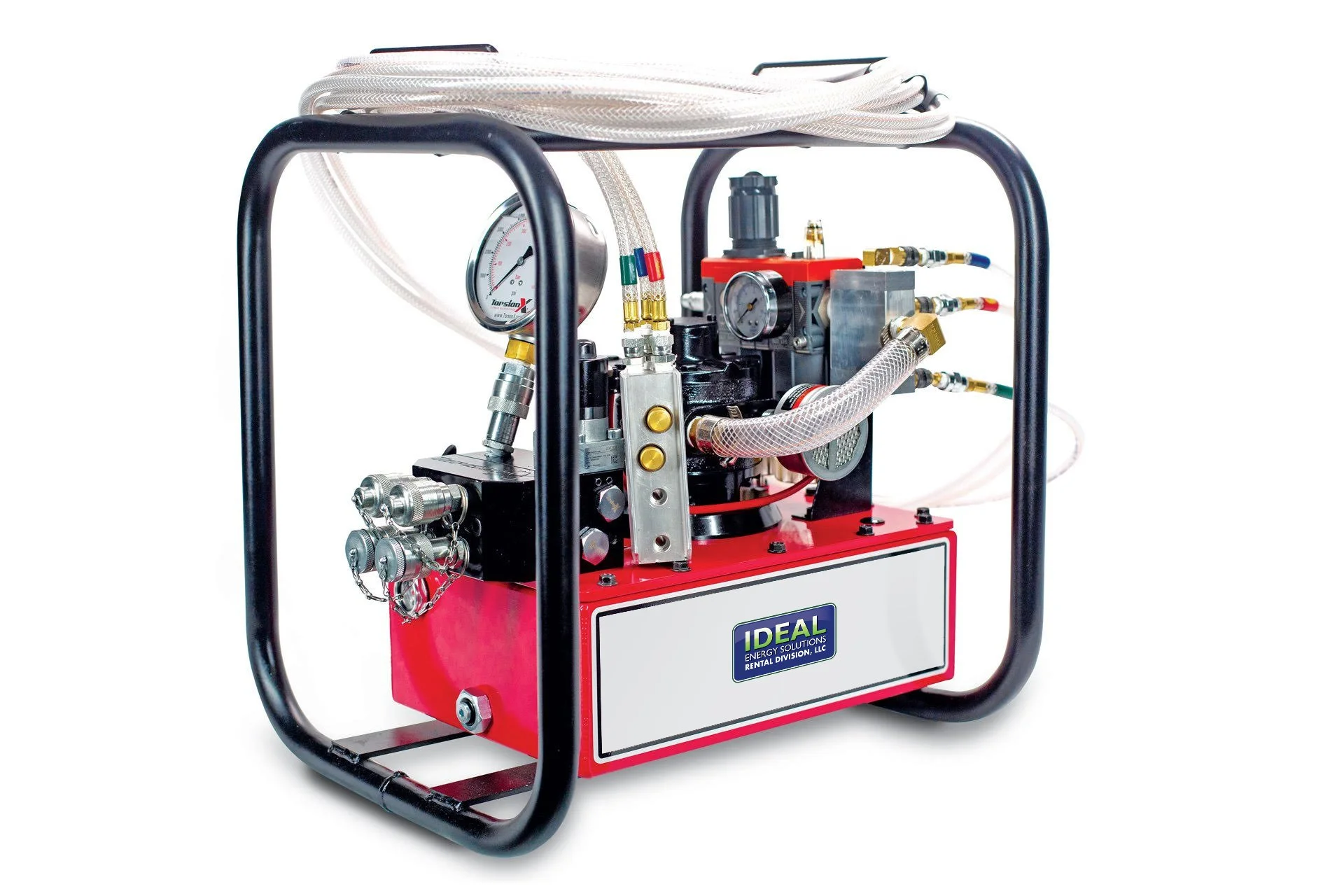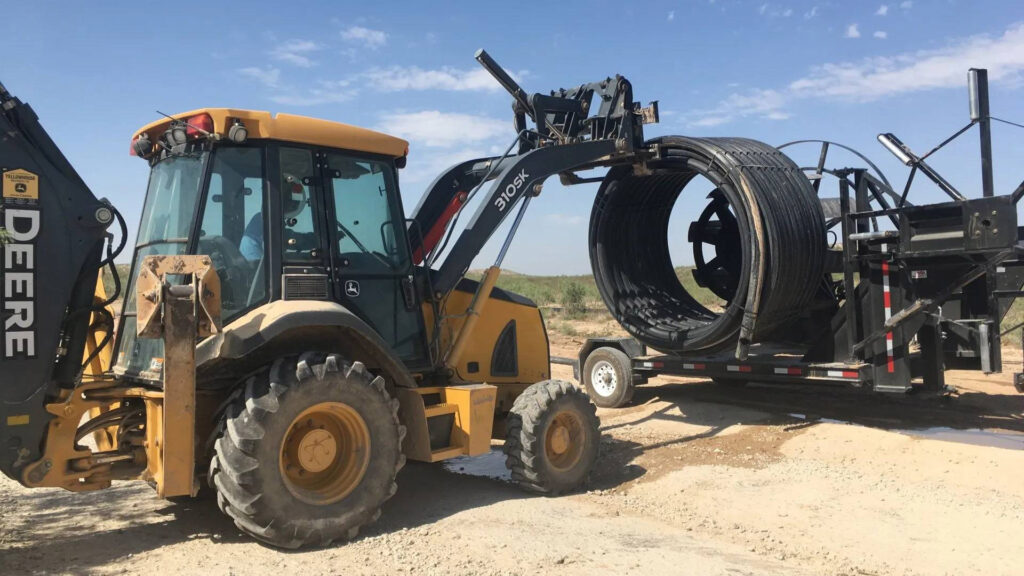A Comprehensive Guide to the Numerous Sorts Of Oil Field Equipment and Pipeline Equipment Available
The oil and gas industry relies heavily on specialized devices for reliable extraction and transportation. Various kinds of equipment, from piercing rigs to tank, play vital roles in this complex procedure. Each piece of equipment offers unique functions that add to total operational success. Understanding these components is important for anybody associated with the industry. As the sector evolves, so as well do the innovations that support it. What developments are on the horizon?

Drilling Rigs: The Backbone of Oil Exploration
Drilling rigs function as the crucial machinery in the domain of oil expedition, making it possible for firms to accessibility hydrocarbon gets hidden deep below the Planet's surface area. These rigs are available in different kinds, including land rigs, offshore rigs, and mobile devices, each developed to operate in certain atmospheres. Equipped with advanced technology, piercing rigs can permeate geological developments with accuracy, guaranteeing efficient source removal. The architectural stability and operational capabilities of these rigs are vital, as they should hold up against extreme problems and substantial pressures. The choice of a boring gear impacts the total job price and timeline, making it a vital consideration for oil firms seeking to maximize their expedition efforts and make best use of productivity in their procedures.
Pumps: Necessary for Liquid Activity
In the oil removal process, the duty of pumps is considerable, assisting in the motion of liquids throughout various stages of manufacturing. Pumps are important for moving petroleum, water, and various other fluids from below ground tanks to the surface area and after that via pipelines to refineries. They come in various kinds, including centrifugal, positive variation, and completely submersible pumps, each serving particular purposes based on the fluid features and operational requirements. Centrifugal pumps are typically made use of for their effectiveness in high-flow applications, while positive variation pumps master handling viscous liquids. The option of pump influences general effectiveness, functional safety, and upkeep prices. Correct choice and upkeep of pumps are essential for enhancing manufacturing and decreasing downtime in oil area procedures.
Shutoffs: Managing Circulation and Pressure

Valves play a crucial duty in managing the flow and pressure of fluids within oil fields and pipelines. Various kinds of shutoffs offer distinctive applications, each created to meet particular features essential for efficient procedure - Superior Rentals near me. Comprehending the qualities and uses these shutoffs is essential for enhancing system performance and safety and security
Kinds of Valves
Vital parts in oil field procedures, valves play an essential duty in regulating the flow and stress of liquids within pipes and devices. Various sorts of valves are made use of to satisfy the varied demands of oil and gas production. Usual kinds include entrance shutoffs, which offer a straight-line flow and marginal stress decline; world valves, known for their throttling capacities; and round shutoffs, acknowledged for their quick on/off control. Additionally, check valves protect against backflow, while butterfly valves supply a lightweight remedy for controling flow. Each valve type is created with details materials and configurations to endure the harsh problems often discovered in oil areas, making sure integrity and effectiveness in procedures. Recognizing these kinds is vital for effective system management.
Valve Applications and Functions
While different kinds of valves offer unique purposes, their key applications rotate around regulating flow and pressure within oil and gas systems. Shutoffs such as gateway, globe, and sphere valves manage fluid movement, making certain peak performance and safety and security. Gate shutoffs are frequently utilized for on/off control, giving minimal flow resistance. Globe shutoffs, on the various other hand, offer precise flow guideline, making them suitable for strangling applications. Round shutoffs are favored for their fast procedure and limited sealing capacities. Furthermore, stress safety valve are critical for protecting against system overpressure, protecting devices integrity. In general, the proper choice and application of shutoffs improve functional efficiency, ensuring the trusted transport of oil and gas with pipelines and processing facilities.
Compressors: Enhancing Gas Transportation
Compressors play a crucial duty in the reliable transportation of all-natural gas, guaranteeing that it relocates efficiently via pipelines over long ranges. These devices increase the pressure of gas, allowing it to this article get over rubbing and altitude changes within the pipeline system. Furthermore, compressors promote the harmonizing of supply and demand, suiting changes in usage and production prices. Various kinds of compressors are used in the sector, consisting of centrifugal, reciprocating, and rotating screw compressors, each offering distinctive benefits based on the operational demands. Regular maintenance of these compressors is necessary to optimize performance and minimize downtime, ultimately adding to a reputable gas transport network. Their critical feature underscores the importance of compressors in the total used dozers for sale by owner oil and gas facilities.
Storage Tanks: Safe and Reliable Fluid Monitoring
Efficient transportation of gas relies upon numerous support group, among which is the appropriate monitoring of tank. These tanks play an essential role in safely consisting of fluids, making certain that operational performance is kept while lessening environmental risks. Built from sturdy materials, they are developed to stand up to high pressures and harsh aspects. Correctly sized and tactically situated, tank facilitate the smooth circulation of gas and various other fluids, stopping traffic jams in supply chains. Regular upkeep and tracking are imperative to spot leaks or architectural problems, promoting security and conformity with regulative criteria. Ultimately, the effective management of tank is vital for the general honesty and integrity of the oil and gas industry's liquid handling systems.
Pipeline Solutions: Framework for Transport
Pipeline systems serve as the foundation of the oil and gas market, promoting the reliable transportation of hydrocarbons over substantial distances. These systems consist of various components, consisting of pipelines, valves, pumps, and compressors, all thoroughly developed to ensure smooth flow. The materials utilized in pipeline building, commonly steel or high-density polyethylene, are picked for longevity and resistance to rust. Pipeline networks can span across land and water, attaching manufacturing websites to refineries and circulation. Additionally, advanced innovation allows real-time monitoring of circulation rates and pressure degrees, boosting functional effectiveness. The tactical placement of these pipelines minimizes ecological impact while maximizing resource availability, thereby playing an important function in conference power needs worldwide.
Safety And Security Equipment: Ensuring Employee and Environmental Defense
The procedure of pipeline systems, while vital for energy transportation, likewise offers significant safety difficulties for workers and the atmosphere. Security devices plays a substantial role in mitigating these dangers. Individual safety tools (PPE) such as headgears, handwear covers, and non-slip shoes safeguards workers from physical dangers. Furthermore, gas discovery systems monitor for leaks, making sure that damaging compounds do not present a hazard to employees or the surrounding ecological community. Emergency closure systems are imperative for promptly stopping procedures during a crisis, protecting against potential catastrophes. Spill control products, consisting of absorbents and barriers, are soil compactors fundamental for minimizing environmental impact. On the whole, investing in comprehensive safety tools is important for keeping operational honesty and protecting both workers and the environment in the oil and gas sector.

Frequently Asked Inquiries
Exactly how Do I Select the Right Oil Field Equipment for My Job?
Picking the ideal oil field devices entails evaluating project requirements, spending plan restraints, and operational needs. Consider factors such as equipment dependability, compatibility with existing systems, and the vendor's online reputation to ensure peak efficiency and safety and security.
What Are the Maintenance Demands for Oil Field Equipment?
Upkeep requirements for oil field tools include routine assessments, lubrication, and prompt fixings. Operators needs to likewise follow supplier standards, screen efficiency metrics, and guarantee conformity with safety regulations to enhance long life and effectiveness.

How Can I Make Sure Compliance With Environmental Laws?
To assure conformity with ecological laws, companies need to perform regular audits, implement finest practices, purchase training, keep correct documents, and remain upgraded on legislation (Superior Rentals fusion machines). Cooperation with environmental companies can likewise improve adherence to guidelines
What Is the Typical Lifespan of Pipeline Equipment?
The ordinary lifespan of pipeline tools usually ranges from 20 to 50 years, relying on aspects such as worldly top quality, ecological problems, and upkeep techniques. Routine inspections can greatly influence longevity and operational effectiveness.
How Do I Safely Transport Oil Field Equipment to Remote Locations?
Delivering oil field equipment to remote areas needs cautious planning, including route analysis, protecting permits, using ideal cars, and making certain safety and security procedures are complied with. Appropriate training and interaction amongst crews are crucial for effective transport.